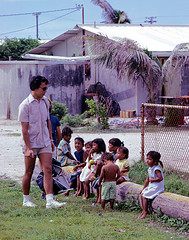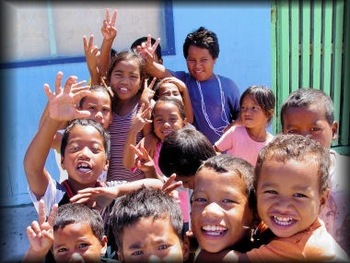
National Training Council – Marshall Islands
Overview
-
Sectors Service
Company Description
National Training Council – Marshall Islands
RMI Education and Skills Strengthening Project
The Government of the Republic of Marshall Islands has received financing from the World Bank for the Education and Skills Strengthening Project (ESSP) expense. It plans to apply part of the profits for speaking with services.
The consulting services (“the Services”) will assist the Project Manager and the RMI National Training Council in executing the World Bank-funded job effectively.
The assignment will focus on supporting the Project Implementation Unit (PIU) in producing a framework for Recognition of Prior Learning (RPL) for TVET, focused on assisting the College of the Marshall Islands and the RMI National Training Council assess and improve the abilities of employees through accredited college accreditation.
The comprehensive Terms of Reference (TOR) for the project are suggested in the connected Terms of Reference (ToR).
The National Training Council now invites eligible people (“Consultants”) to indicate their interest in supplying the Services. Intrigued Consultants need to provide details demonstrating that they have the required qualifications and pertinent experience to carry out the Services (attach a Cover Letter of no greater than four (4) pages attending to the obligatory experience and credentials requirements curriculum vitae with a description of experience in similar tasks, similar conditions, and so on). Companies’ personnel may express interest through the employing company for the task. In such a situation, only the experience and credentials of people will be considered in the choice process. The criteria for choosing the Consultant are: A.
Mandatory Qualifications and Experience Master’s degree in education, training
, management, or a related field. Minimum of 5-10 years of experience working in TVET System. Curriculum Design and Systems.
Have 2-5 years’ experience designing and
executing RPL. structures, policies, and treatments. A sample of previous work will be required as evidence of previous experience. Outstanding communication, training, and assistance
skills. Experience with dealing with diverse stakeholders, consisting of federal government. agencies, TVET organizations, companies, and students in the Pacific. B. Desired Qualifications and Experience Ability to deal sensitively in a multicultural
environment and construct efficient group relationships with customers and appropriate stakeholders. The attention of interested Consultants (consisting of companies )is drawn to paragraphs 3.14, 3.16 and 3.17 of the World Bank’s”
Procurement Regulations for IPF Borrowers “July 2016 modified November 2020” Procurement Regulations “, stating the World Bank’s policy on conflict of interest. Further details can be acquired at the address below during workplace hours, 0900 to 1700 local time. Expressions of interest must be
delivered in a written form to the address below (face to face or by e-mail )by 5:00 pm, 23rd December 2024.
The subject line must state:”National Training Council Strategic Plan Consultant -full name of the candidate”. Julius Lucky Director National Training Council!.?.!ntcdr@ntcinfo.org:Phone: 692 625-4521 Empowering Community Champions for Sustainable Development in RMI Gender Equality, Climate Resilience and Water Safety Training Majuro,
Republic of the Marshall Islands: The fourth
Women and Youth Training for
Gender Equality, Climate Change, Disaster Risk Reduction and Water Safety Management has actually just recently happened at the University of the South Pacific’s school in Majuro, the Republic of the Marshall Islands(RMI ). This crucial training was arranged by the United Nations Development Programme( UNDP )Pacific Office through the Addressing Climate Vulnerability in the Water Sector(ACWA) project. The week-long capacity-building training intended to empower ladies and youth with the understanding and practices required for climate-resilient water safety management in the
Republic of the Marshall Islands(RMI ). This training reinforces a dedication to boosting RMI’s water security and community durability versus environment modification impacts, particularly ladies
and youth, guaranteeing that nobody is left. The training invited participants from all 24 atolls and included resource speakers from federal government agencies, non-governmental organizations, and worldwide advancement partners from the RMI Environmental Protection Authority, Climate Change Directorate, Office of the Chief Secretary, Ministry of Culture and Internal Affairs, National Disaster Management Office, Women United Together Marshall Islands, rmi national training council Human Trafficking Task Force, Waan Aelõñ in Majel, Jo-Jikum, and the International Organization for Migration. In her opening remarks, Secretary for the Ministry of Culture and Internal Affairs, Brenda Alik, underscored the significance of cumulative action in building a climate-resilient nation.”It is our obligation to come together and collaborate. As we face the difficulties postured by climate change, comprehending its influence on our water resources is important for enhancing the wellness of neighborhoods across the Marshall Islands,”she stated.
RMI Environmental Protection Authority General Manager Moriana Philip highlighted in her speech the vital role of ladies and youth in addressing climate-related difficulties.”This workshop unites us from various communities to resolve the pressing concerns we deal with today, including climate-related obstacles, particularly on our water resources.”We wish to stress the crucial role of women and youth in this job as your involvement contributes to its success and beyond, “she said.
The very first day of the workshop covered vital issues related to gender equality, human rights, and public health within the Marshall Islands. It consisted of discussions on gender equality and mainstreaming, concentrating on the effects of environment modification on water security and the disproportionate results on susceptible groups. The importance of incorporating gender equality and social inclusion into all project elements was likewise talked about. Human rights and human trafficking were dealt with, stressing the requirement for thorough protection of vulnerable populations

throughout emergency situations. Furthermore, the workshop addressed gender-based violence, highlighting the numerous forms that can develop in catastrophe circumstances, such as domestic violence and sexual coercion. The agenda concluded with a focus on sanitation and hygiene and their vital function in health, livelihoods, school attendance, dignity, and building durable neighborhoods. ACWA Project Manager Koji Kumamaru expressed his appreciation to all participants
, highlighting the value of their contributions to their neighborhoods.”Women and youth are crucial to the success of the ACWA job. More significantly, you are the champs and future leaders who will return to your neighborhoods to empower others,”he stated. Throughout the workshop, participants went to Rongrong Island and examined the 15,000-gallon Flatpack Modular water tank installed at the Rongrong High School Boys Dormitory as part of the ACWA project. The setup is a key element of the task, complemented by assistance from Australia
‘s Department of Foreign Affairs and Trade. The see functioned as a valuable direct experience of the favorable effect of the ACWA project on the community and its
water resources. Marie Naisher from Jabat Island expressed her appreciation for the opportunity to join the workshop and explained her desire to be part of the job when it reaches Jabat.
“This was my very first time taking part in such training, and I learned so much from the guest speakers, group activities, and the site visit. I now comprehend the importance of clean water and how to sterilize it. I’m ecstatic about the ACWA job pertaining to Jabat and all set to help when it gets here,”she said. Don Kobney, an ACWA website planner from Santo, Kwajalein, likewise shared his excitement.”The workshop and site check out boosted my confidence and understanding of the water tank installation.
Seeing the 15,000-gallon flatpack modular water tank firsthand gave me a clear understanding of the system, and I’m eagerly anticipating sharing this knowledge with my neighborhood, “he said. By the workshop’s end, individuals were much better geared up to comprehend climate change and its local impacts, drive adjustment and mitigation efforts, especially in water security, and utilize brand-new resources to impact their communities favorably. ACWA is made possible thanks to the assistance of the Green Climate
Fund, with the job co-financed by the Government of the Republic of the Marshall Islands

. The Marshall Islands: Skills Training and Vocational Education Project Assesses the efficiency of the task and highlights lessons. Offers inputs to 2 wider assessments- the regional assessment of ADB support for the Pacific and the unique assessment research study on Millennium Development Goals. The low instructional attainment and shortage of Marshallese skilled workers were mainly due to the low quality of standard education, absence of access to education in the external islands, and weak points in abilities training and the occupation and technical education system.
These supported an economy marked by high unemployment because of constrained economic sector development and federal government downsizing. Joblessness was especially high among the youth and women in the outer islands. Ideal regional competent workers for existing job vacancies
were unavailable, hence the importation of appropriately proficient foreign workers. Thus, there was a mismatch in between offered jobs and abilities of the Marshallese labour force. These conditions offered the effort for the Government
of the Marshall Islands to focus on technical and vocational education training reforms. In 2000, ADB authorized a loan for $9.1 million to improve abilities training to offer trained employees required for sustained financial and social development. This was to be accomplished through an integrated national skills training system. The task included 4 parts: development of a profession awareness program, abilities training enhancement, enhanced skills training opportunities for women and youth, and institutional strengthening. The expected outcome was increased income-generating opportunities and employment for students, especially ladies and youth in the outer islands. In general, the task was ranked unsuccessful. Restricted development was attained in making the task responsive to the requirements of its beneficiaries and private-sector employers. The enduring weakness of bad numeracy and literacy competencies
among public primary and secondary school graduates and dropouts getting in college or going to voc-tech education could be partly attributed to the poor quality of basic education. The project was supply-driven and might not establish a strong linkage with private sector requirements or align its activities with the needs of the labour market. The status of the technical and occupation education training system has stayed fundamentally the very same after task completion. The research study put forward that ADB might motivate the Government of the Marshall Islands, through assessment and policy discussion, to follow through on the government’s
commitment to establishing a committed labour info system to link technical and vocational education training program offerings with market need. Although the project set up a labour market details system, in the absence of in-house personnel ability at the National Training Council, it was not totally operational.

